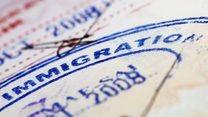In the midst of the challenges that a family breakdown presents, a collaborative and constructive approach is often the most cost-effective way to move forward; both in terms of financial and emotional costs. It is always preferable to agree matters between yourselves, but where that is not possible, the Courts in the Cayman Islands can help to provide clarity and finality for your situation.
On This Page
The Process of Divorce / Family Separation
If you are considering separating, the first step is to talk with your partner directly in an attempt to negotiate the division of your assets and/or make proposals for the children of the family together. If you are able to agree on the terms of your separation before engaging a lawyer to draw up paperwork for you, the entire process is much more straightforward. If an agreement cannot be reached, you may approach a lawyer to assist with navigating the process and/or, if necessary, enlist the help of a mediator.
Legal aid may be available for parties who cannot afford a lawyer where domestic violence or child neglect arises. If the parties do not qualify for legal aid, then they may seek free legal advice from Legal Befrienders, a programme run by the Family Resource Centre.
It is not possible to be granted a ‘no fault’ divorce in the Cayman Islands. Instead, the Petitioner must prove one of the following grounds for divorce: (a) adultery has been committed and the Petitioner finds it intolerable to remain married; (b) unreasonable behaviour; (c) desertion for two years; (d) two years separation with consent; or (e) five years separation. The Petitioner is the party who has decided to commence divorce proceedings; the party who is required to answer those proceedings is known as the Respondent. If adultery has occurred, you cannot apply for a divorce unless two years have passed since the marriage date, unless there is exceptional hardship. A party can file for divorce if they have been domiciled in the Cayman Islands within the preceding year or, if the person who is applying for a divorce is female, she has been ordinarily resident in Cayman for the past two years.
Divorce Proceedings for Caymanians vs. Expats
For non-Caymanians who separate, domicile and residence are legal concepts which may need to be defined. Your legal status to remain on-Island may be impacted and issues such as where family members will then live may arise. Well-structured legal advice will include counsel from a qualified immigration specialist before proceedings start.
Starting Divorce Proceedings
The two documents required to commence divorce proceedings are: a petition that sets out the facts of the marriage and the grounds of the divorce; and a sworn affidavit whereby you state that the petition is true and accurate. A certified copy of your marriage certificate will also be required. The petition is then filed with the Court and served on the Respondent. The Respondent will have 14 days to reply indicating whether they contest the divorce grounds (28 days if they are overseas). If the Respondent does not defend the divorce, then the Court will prove the petition. Otherwise, the case will be listed before a Judge, who will decide what happens next.
Related Articles
Mediation and Other Forms of Dispute Resolution
Mediation is a form of alternative dispute resolution which can avoid the expense and stress of litigation. A qualified Mediator can guide the parties through the process. In the Cayman Islands, mediation is a necessary first step before financial proceedings can be progressed through the Court. Court-mandated mediation is free, but often, parties will engage lawyers to assist. Mediation outside of the Court-mandated process must be paid for privately. It is also possible to engage in dispute resolution with a third-party lawyer who is engaged to act as ‘judge’ to assist parties in reaching agreements, known as the ‘financial dispute resolution’ process. These collaborative approaches typically have a high success rate, even where there are disputes between the parties.

Children
Decisions may need to be made about who children spend time with or where they live, their education, travel, holidays and other matters. If an agreement cannot be reached between parties, the Court may determine these issues on your behalf. You can ask the Court to make certain orders in respect of children even if you were never married. Whether a Court Order is necessary should be considered at all times. If arrangements are not contested, practicalities can be set out in a written parenting agreement. Each case is different, but the children’s welfare is always the paramount consideration.
If you want to find out more about the types of applications that can be made to the Court concerning children, a helpful Court service guide can be found here: www.judicial.ky/general-public/making-an-application-under-the-children-law.
Financial Provision
Decisions may need to be made concerning the division of your home, property, pensions, savings, other assets and debts. Periodic maintenance payments may also be appropriate for children and spouses. Child maintenance is regular, reliable financial support that helps towards a child’s everyday living costs. Many parents choose to work together to agree on the terms of any child maintenance arrangement. Maintenance can include school fees, health insurance premiums and the costs of extracurricular activities. When considering how finances should be arranged, the Court is guided by a number of factors, starting with the welfare of any children of the relationship, and thereafter to other responsibilities, needs, and to the actual and potential earning power of each of the parties. There is no specific formula applied in the Cayman Islands with respect to maintenance calculations, such as those adopted by the UK, where a universal child maintenance calculator is used. Rather, it is open to the parties to agree on an appropriate sum, or for the Court to decide.
Relocation
Following a divorce or separation, one parent may need or wish to relocate to another country with the children. If the other parent disagrees, then permission from the Court must be obtained before that child can be removed from the Cayman Islands. This is known as a relocation application. Such cases are often emotionally fraught and legally complex. Specialist legal advice should be sought at the earliest opportunity.
Costs & Timelines
An amicable (non-contentious) divorce may cost around CI$5,000 in legal fees. The cost of a contentious (or non-amicable) divorce or separation will vary depending on the issues in dispute. Any form of dispute resolution will typically result in lower costs than a matter which remains fully contested. Legal aid may be available for parties who cannot afford a lawyer where domestic violence or child neglect arises. Further information can be found here: www.judicial.ky/general-public/applying-for-civil-legal-aid. If the parties do not qualify for legal aid, then they may seek free legal advice from Legal Befrienders Unit, which is operated by the Family Resource Centre.
Domestic & Child Abuse
If you are in a difficult or dangerous situation and/or your wellbeing or safety is at risk, you should contact 911. Alternatively, the Cayman Islands Crisis Centre (CICC) provides a helpline 24/7 (Tel: (345) 943 2422).
The CICC offers a walk-in service for crisis intervention and the assessment of victims of family violence. The Court can make an order on application to protect you, your children and other connected persons. In serious situations, applications for a protection order can be made confidentially without notice being made to your spouse in the first instance.
Law Firms in the Cayman Islands that specialise in Family Law
About the Author – Louise Desrosiers
Louise Desrosiers, Head of the Family Department and Accredited Mediator at Travers Thorp Alberga, is a highly experienced family law litigator and accredited mediator. She is an expert in dealing with nuptial agreements, divorce and ancillary financial matters, in addition to the practical and financial arrangements for children.







